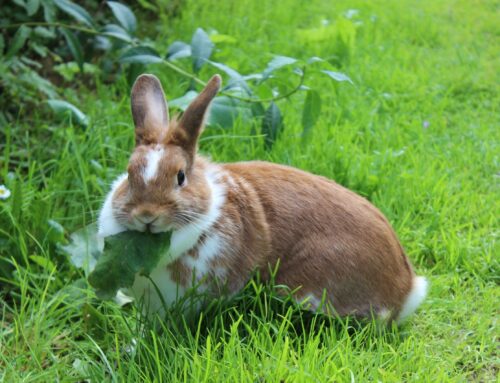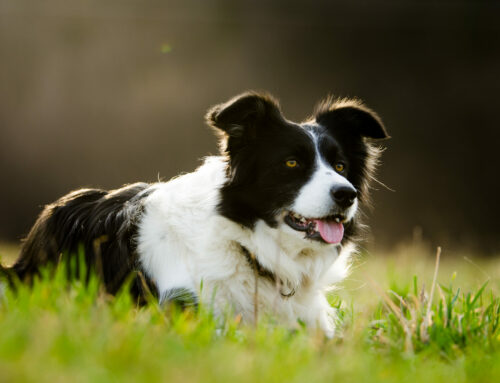We are sadly seeing a lot of Leptospirosis in the Mallow area – is your dog protected from this deadly disease? ‘Acorn Vets have seen 5 or 6 dogs with Lepto in the Mallow area this year. Even when caught early they don’t survive, that’s what I notice about it,’ our vet Noel Ahern says. ‘Prevention is the main way to curb this disease.’
Leptospirosis is a disease caused by bacteria named Leptospira. In recent years, more cases are being seen in dogs, so the disease is now labelled as ‘re-emerging’. It is a zoonotic disease (a disease that can also infect humans) and is probably the most widespread zoonotic disease in the world, with recent increases in human cases too. This disease is sadly not fictional, and is seen in veterinary clinics worldwide. Once caught, it can be fatal or leave lifelong damage. Fortunately, there is a simple way to try and prevent it – vaccination.
How is it caught?
Dogs usually become infected after contact with soil or water contaminated with urine from infected animals, such as rodents, foxes, hedgehogs or other dogs. More rarely they can be infected via direct contact with those infected animals or their urine. Chronically infected reservoir host species, such as rodents, maintain disease in the environment and can shed the bacteria for months or even years without showing clinical signs.
These bacteria can also remain infectious for several months in moist soil or stagnant water. It is more common in rural areas, and during high rainfall or floods, but any pet that goes outside, whatever age, breed or area can be infected.
Contact with infected pet dogs’ urine can be a source for humans, but more often it comes from contact with infected water, often during watersports.
What signs might my dog show?
Affected dogs often have a fever. The bacteria most commonly affects the kidneys causing signs such as lethargy, loss of appetite, vomiting, urination changes and abdominal pain. In dogs with underlying diseases, the aged, the young, or when the damage is severe, dogs may not survive this phase or they may go on to suffer from chronic kidney disease. Some dogs suffer much milder signs.
Acute liver disease often accompanies renal failure, or it may occur alone. The signs are similar to that of renal disease, but they will usually have yellow-tinged gums/skin (jaundice).
Many dogs will have a cough or breathing issues and a snotty discharge from the eyes and nose.Dogs may also have stiffness, trembling and reluctance to move as the bacteria can affect the muscles.
Less commonly, the bacteria can cause bleeding disorders, causing your dog to have nose bleeds or blood in their faeces or vomit, probably due to the bacteria damaging the blood vessel lining.
How do you diagnose lepto?
Dogs presenting with a fever alongside signs of renal or liver disease are often suspected, especially if unvaccinated. Although the disease can occur in vaccinated dogs the symptoms are almost always less severe. Blood and urine tests may confirm liver and/or kidney damage. Changes to red and white blood cell counts and blood clotting tests may also be found.
There are specific blood and urine tests looking for antibodies or the bacteria itself, but they can be hard to interpret, especially if the animal has been vaccinated or has already started on treatment.
How is it treated?
Leptospirosis is a bacteria so can be treated with certain antibiotics. Treatments to support the damaged organs is very important. These may include intravenous fluid therapy, addressing electrolyte imbalances, and medications to control the pain and gut signs often seen.
Infected dogs are usually hospitalised for some time and often in an isolation ward. Strict precautions need to be taken when handling infected dogs, and their blood and urine, due to potential for human infection. We can advise you on how to disinfect your home and how to prevent spread. Even when treated, dogs may shed the bacteria for some time, so hygiene precautions are extremely important both at the hospital and also if your dog is allowed home.
A long course of antibiotics is often needed to prevent long-term shedding of the bacteria. Hygiene surrounding the dog’s urine is vital. Wear gloves and wash your hands after any contact, dispose of soiled bedding and disinfect regularly. Pregnant women, immunosuppressed people, children, and other dogs should avoid contact with the dog until your vet advises you the risks are reduced. Any person feeling unwell after exposure to an infected dog should seek medical attention.
Occasionally, in-contact dogs can become infected, not show signs, but shed the bacteria. For this reason, we may recommend treating in-contact dogs.
Treatment is not always successful, and the prognosis is especially poor for dogs that show neurological signs such as wobbliness, head pressing, trembling or seizures.
What’s the best way to prevent it?
Prevention is always best and although not guaranteed, vaccines are available to reduce the risk of infection with the disease, control the clinical signs of it and to try and prevent death. The leptospirosis component is usually included in the primary vaccination course.
Immunity resulting from vaccination is not long-lived so, unlike some of the other components, annual boosters for Leptospirosis are necessary. Vaccination against the two main historic strains of the bacteria have been effective at controlling disease, but leptospirosis appears to be re-emerging worldwide. Additional strains have been implicated so vaccines covering 4 strains are now available, to protect against the most common serovars (strains) found in Europe. Some vaccines also reduce bacterial shedding in dogs that may carry the bacteria without signs, so vaccination is of value to public health generally.
If your pet goes outside it’s hard to avoid the risk of leptospirosis. Keeping your dog away from stagnant water in shady areas may help as the bacteria is rapidly destroyed by light and temperatures of above 20C.
If you have any further questions about this bacteria, dog vaccinations, or want to ensure your pet is protected, please contact the practice for advice.



